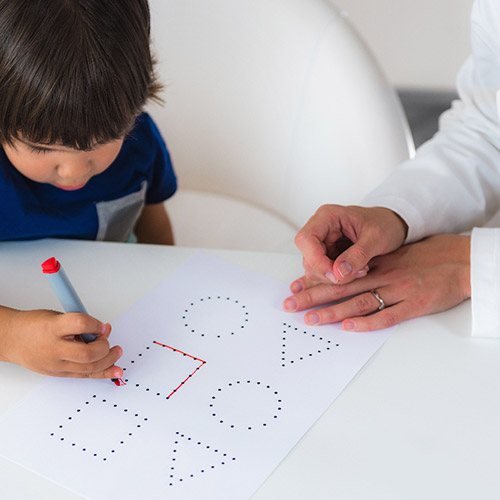- About Us
- Departments & Services
- Clinicians
- Patient & Visitor Guide
- Community
- Contact Us
Close

What is a Psychoeducational Assessment?
A psychoeducational assessment is a comprehensive evaluation process that measures a student’s cognitive/intellectual abilities (verbal skills, problem solving abilities, attention and memory), achievement/academic skills in several subject areas (reading, writing, and math) as well as their social, behavioral, and emotional functioning. It allows us to understand a student’s areas of strength and weakness, so we can help them build on their strengths and overcome their weaknesses.
This process includes interviews with the child (or teen), parents, and sometimes teachers, one-on-one testing sessions, and observations. Once the assessment is complete, we provide a detailed report explaining the child’s student’s abilities and needs. We also provide recommendations including interventions based on the unique skills and needs of the student. If necessary, we help the parents and/or student connect with other services such as speech therapy and psychotherapy.
For many students, getting a psychoeducational assessment and understanding why they are having difficulties at school is a big step toward not only clarifying their specific problems, but also accessing timely interventions and support programs to help them thrive in school and in life. Our psychologists have extensive training and experience in assessments using most up-to-date assessment tools and provide comprehensive assessment reports. In addition, they consider the role of cultural and social factors when assessing students’ concerns.
We provide psychoeducational assessments for the following concerns:
Who Would Need a Psychoeducational Assessment?
If your child (or student) continues to struggle significantly in certain school subjects despite getting
additional support, it might be very helpful to seek out a psychoeducational assessment. Other signs that a
school- aged child, teen, or a university student would benefit from this assessment include:
Step-by-Step Psychoeducational Assessment Process at CERC/ FSHN